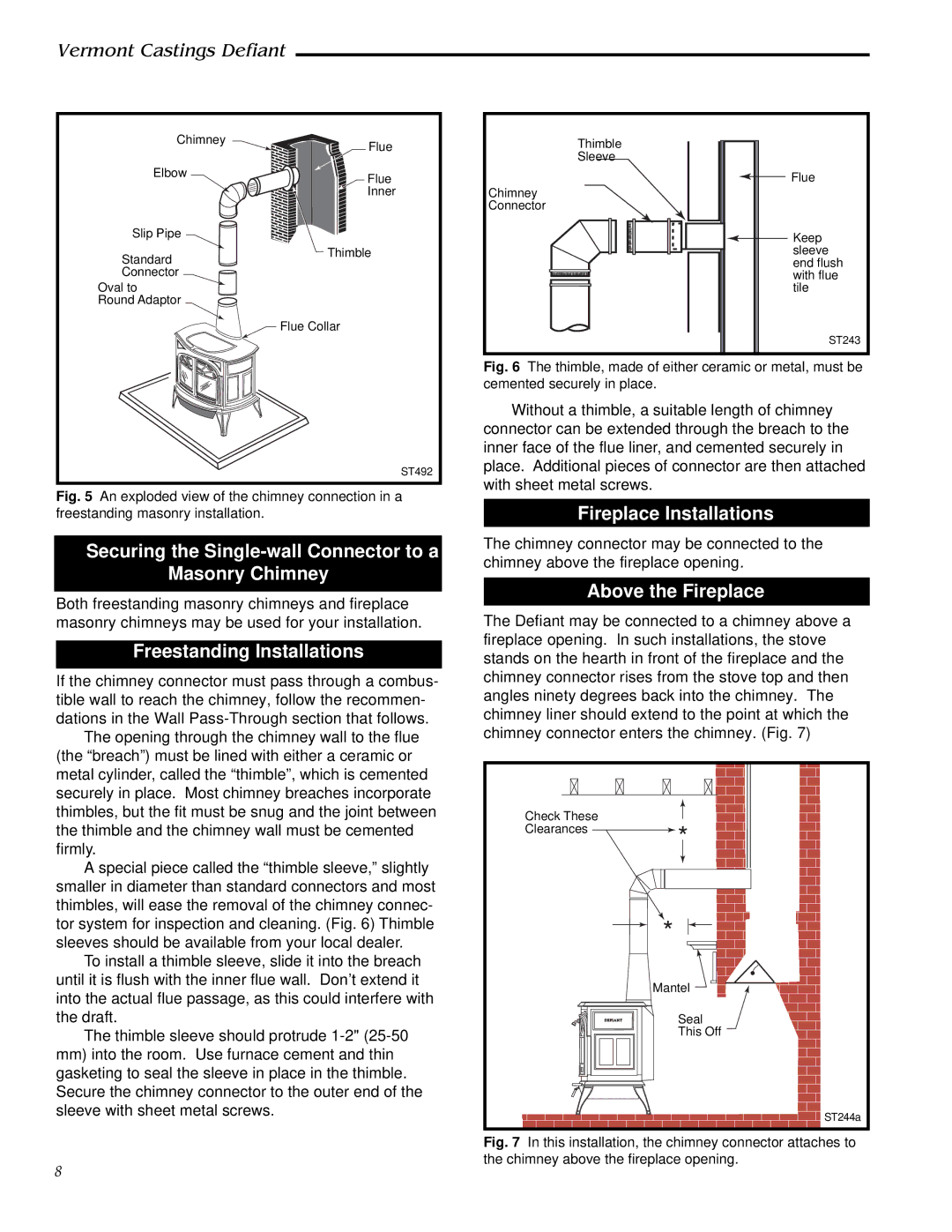
Vermont Castings Defiant
Chimney | Flue |
| |
Elbow | Flue |
| |
| Inner |
Slip Pipe |
|
Standard | Thimble |
| |
Connector |
|
Oval to |
|
Round Adaptor |
|
| Flue Collar |
ST492
Fig. 5 An exploded view of the chimney connection in a freestanding masonry installation.
Securing the Single-wall Connector to a Masonry Chimney
Both freestanding masonry chimneys and fireplace masonry chimneys may be used for your installation.
Freestanding Installations
If the chimney connector must pass through a combus- tible wall to reach the chimney, follow the recommen- dations in the Wall
(the “breach”) must be lined with either a ceramic or metal cylinder, called the “thimble”, which is cemented securely in place. Most chimney breaches incorporate thimbles, but the fit must be snug and the joint between the thimble and the chimney wall must be cemented firmly.
A special piece called the “thimble sleeve,” slightly smaller in diameter than standard connectors and most thimbles, will ease the removal of the chimney connec- tor system for inspection and cleaning. (Fig. 6) Thimble sleeves should be available from your local dealer.
To install a thimble sleeve, slide it into the breach until it is flush with the inner flue wall. Don’t extend it into the actual flue passage, as this could interfere with the draft.
The thimble sleeve should protrude
mm)into the room. Use furnace cement and thin gasketing to seal the sleeve in place in the thimble. Secure the chimney connector to the outer end of the sleeve with sheet metal screws.
Thimble
Sleeve
Flue
Chimney
Connector
Keep sleeve end flush with flue tile
ST243
Fig. 6 The thimble, made of either ceramic or metal, must be cemented securely in place.
Without a thimble, a suitable length of chimney connector can be extended through the breach to the inner face of the flue liner, and cemented securely in place. Additional pieces of connector are then attached with sheet metal screws.
Fireplace Installations
The chimney connector may be connected to the chimney above the fireplace opening.
Above the Fireplace
The Defiant may be connected to a chimney above a fireplace opening. In such installations, the stove stands on the hearth in front of the fireplace and the chimney connector rises from the stove top and then angles ninety degrees back into the chimney. The chimney liner should extend to the point at which the chimney connector enters the chimney. (Fig. 7)
Check These
Clearances ![]() *
*
![]()
![]()
![]() *
* ![]()

| Mantel |
D E F I A N T | Seal |
| This Off |
ST244a
Fig. 7 In this installation, the chimney connector attaches to the chimney above the fireplace opening.
8
